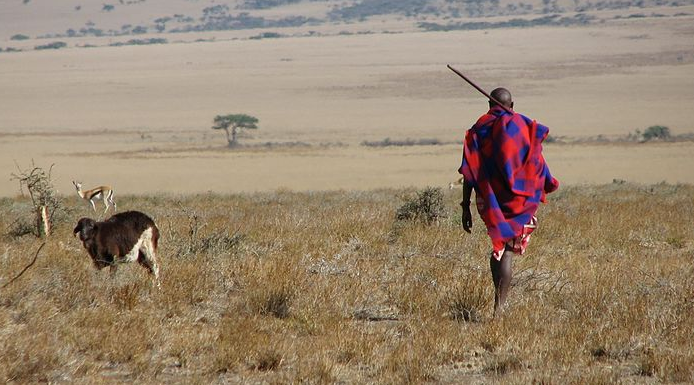Obviously, without a signed negotiated comprehensive peace agreement, any claim that peace has arrived in Northern and Eastern Uganda rings hollow
[International: Uganda Commentary]
For nearly 21 years, all attempts to resolve the genocidal war in northern Uganda between rebels currently led by the Lords Resistance Army (LRA) and the government of Uganda (GOU) have failed.
Therefore, the announcement of the start of a new peace initiative mediated by Dr. Riek Machar, the Vice President of the government of South Sudan in Juba on July 14, 2006 was greeted with much excitement and hope for peace. To date the most significant achievement has been the signing of the Cessation of Hostilities Agreement (CHA) between the GOU and the LRA in 2006 and 2007.
However, the peace negotiation that led to the CHA has steadily been undermined and it might have been irrevocably damaged (see my previous column “Why the Juba peace talk is faltering again,” Blackstar News). The future of the peace talk has reached a critical point similar to the situation we reached in December 2004 when the Bigombe II peace initiative collapsed except for the difference in the dynamics.
First, the current LRA is apparently a weakened organization due to alleged defections to government sides following the presumed execution of Vincent Otii last October. Moreover, the LRA negotiation team has occasionally dissociated itself from the LRA organization, thus creating a distrustful atmosphere between them.
Under such circumstances, it is doubtful whether the peace negotiation team will have the courage to go to the bush to report to the LRA organization the findings of its recent “consultation” tour in Uganda. The delegation was to have gone to the bush to report to Bush shortly after completing its consultation in Uganda last December. Instead, they are scattered all over the place, except Juba, amidst allegations that members of the LRA negotiation team are simply there to seek individual fortunes.
Second, the GOU has been everything but conciliatory. It has held a series of meetings with some of its neighboring states—Rwanda, Burundi, South Sudan and the Democratic Republic of the Democratic Republic of Congo—and the UN monitoring troops stationed in the DRC to chart out strategies for eliminating what they call “negative forces” in the Great Lakes Region.
In fact, about two months ago, President Yoweri Museveni issued an ultimatum that if the LRA does not sign a comprehensive peace agreement by the end of January 2008, it will be destroyed militarily. The GOU also seems to be of the view that the war is now over, having chased away the LRA from Uganda and are effectively guarding the borders against any LRA infiltration.
It is also important to remember that Museveni has the full backing of the United States because he is fighting a proxy war for the US in Somalia. Britain via the Commonwealth has also thrown its support behind President Museveni by bestowing upon Museveni the Chairmanship of the Commonwealth organization.
Furthermore, by their silence, the international community has thrown its support behind Museveni. The consequence is that President Museveni has no incentive to negotiate a sustainable peace. He will simply ignore any effort to resolve the underlying problems of dictatorship that is all pervasive in Uganda and the neighboring countries, Kenya being the latest addition.
That means that the people in the IDPs camps may end up being incarcerated there indefinitely and the problem of marginalization will continue until there is no more resistance of President Museveni’s dictatorial rule.
Given the apparently weakened LRA, a view is emerging that peace has finally arrived in northern and eastern Uganda. This has been proclaimed by Museveni in his address to Acholi people at the Peace Consultative Conference held in Gulu last December. Such a view has also been echoed by the soon to retire Anglican Bishop Onweng of Gulu, who in a recent address at Bungatira IDPs camp near Gulu, issued a warning to the residents that they should vacate his land and return to their homes because peace has now been restored.
There is no denying that there is a modicum of peace in that there has not been a shooting war for almost two years now. While the absence of a shooting war is an important part of peace, it must not be confused with sustainable peace because the situation on the ground tells a different story.
For one thing, there are still close to a million people confined to the IDPs camps. The main reason that the IDPs camps have not been disbanded in spite of government proclamation is that no comprehensive peace agreement has been signed between the combatants.
Consequently, people are not confident that the war will not flare up again. They are acutely aware that in the past, the GOU did not protect them when they were attacked by rebels. Besides, it makes no sense to move to some “decongestion” camps or begin to build only to be forced to leave again. Of course, such concern is not at all allayed by the January 31 ultimatum issued by the GOU.
Another reason for the people’s reluctance to leave the camps is that the GOU had previously promised to assist people in the process of resettlement. Having been forcefully confined in the IDPs camps by the GOU for over a decade, the GOU is duty bound to assist them with resettlement. It is, therefore, not enough for the GOU or some leaders to simply urge people to go home when no comprehensive peace agreement has been signed, nor is there any systematic facilitation of the return of people to their original homes.
Obviously, without a signed negotiated comprehensive peace agreement, any claim that peace has arrived in Northern and Eastern Uganda rings hollow. So, what is the way forward since the Juba peace talk in which so many have put their hopes is apparently collapsing? As I had previously said (see Why the Juba peace talk is faltering once again, www.friendsforpeaceinafrica.org), whether the LRA self-destructs or is split and destroyed by Museveni, should not divert us from holding responsible all those who have created the genocidal conditions in Northern and Eastern Uganda to be dealt with using an appropriate mechanism such as Mato Oput or Truth and Reconciliation Commission.
In the meantime it is imperative to work to expedite the removal of the genocidal conditions still existing in Northern and Eastern Uganda.
For a long time, we have advocated for a strong direct participation of civil society in the peace process, not as individuals or small groups, but as an organized community of victims (see
A case for a third party participation in the Juba peace talks. ASWA TIMES, Oct. 30, 2006, Vol. II Issue Nr. 1; Negotiation by intrigue will not bring us peace, 12.03.06, and Who Should Speak for the Victims of the LRA-UPDF War? www.friendsforpeaceinafrica.org).
Unfortunately, such a proposal was confused with that of the GOU which wanted to send its selection of victims—narrowly defined as those with body mutilations and those who suffered loss of lives—to face the LRA at the Juba talks. Consequently, it was rejected at the Acholi Consultative Conference in Juba held in March 2006. In contrast to the narrow definition of victims, most people from Acholi and to a large extent, its neighbors (Lango, Teso, Karamoja, Bunyoro and West Nile), including those in the Diaspora are victims of the war in some form or another.
The other reason for rejecting the third party participation was that technically it would be difficult to organize such a delegation to represent the community of victims. Such an argument was rendered invalid by the fact that two conferences of diverse individuals and organizations were assembled in Juba and Gulu to debate and pass an 11-point resolution. Undoubtedly, a similar assembly of people of diverse opinions could sit down and come up with an effective way to implement such a proposal.
One of the consequences of excluding an organized civil society from direct participation in the peace talk is about to come to light. If the LRA were to disintegrate or withdraw from the negotiation, it will leave the underlying causes of the war unresolved. For example the North and East of Uganda have been utterly marginalized and deprived of proportionate national wealth resulting in the destruction of the education system, healthcare, sanitation, and so forth. Recent Primary Education Examination results show that schools in the war affected areas all performed very poorly.
It is imperative that for the peace process to move forward, the focus should be on the people who are still locked up in the IDPs camps. While it is easy to call upon the international community to help solve the problem, in reality, it will take the active participation of an organized civil society to move the peace process forward.
This has been shown to be the case in other countries that experienced major conflict, bringing into existence groups such as: Institutionalizing A Political Voice and Ensuring Representation in Northern Ireland; Women and the Peace process of Sierra Leon; Civil Society Assembly of Guatemala; the Regional Concentration of Mali; Civic Initiatives in the Peace Process of Liberia; and, Peace Movement in Angola.
In this regard, the recent Consultative Conference held in Gulu is in the right direction. The conference made 11 recommendations concerning the implementation of Accountability and Reconciliation when and if the comprehensive peace agreement is signed. However, to make such a conference more effective, it needs to be more inclusive. Instead of being overly concerned with the existence of many different groups including religious, traditional, political, women, and youth groups, we should embrace and celebrate them.
The conference was also too narrowly focused. Instead, it should have discussed and developed consensus of various items of the negotiation as part of the peace process. The various segments of civil society including women, Diaspora, youth, religious organizations and others should be encouraged to become actively engaged in the peace process, not just as observers, but as participants.
To comment or to subscribe to or advertise in New York’s leading Pan African weekly investigative newspaper, or to send us a news tip, please call (212) 481-7745 or send a note to [email protected]
Also visit out sister publications Harlem Business News www.harlembusinessnews.com and The Groove music magazine at www.thegroovemag.com
“Speaking Truth To Empower.”











